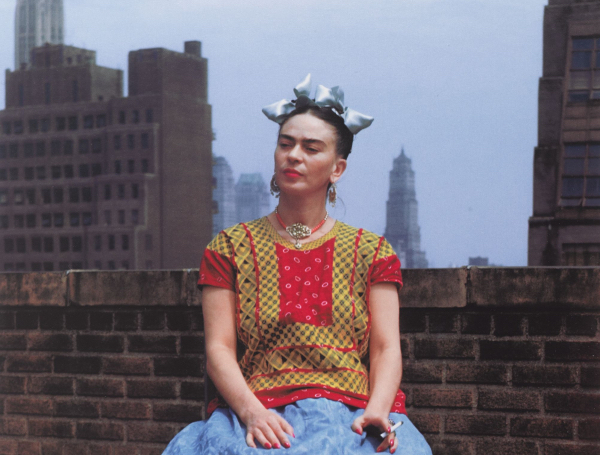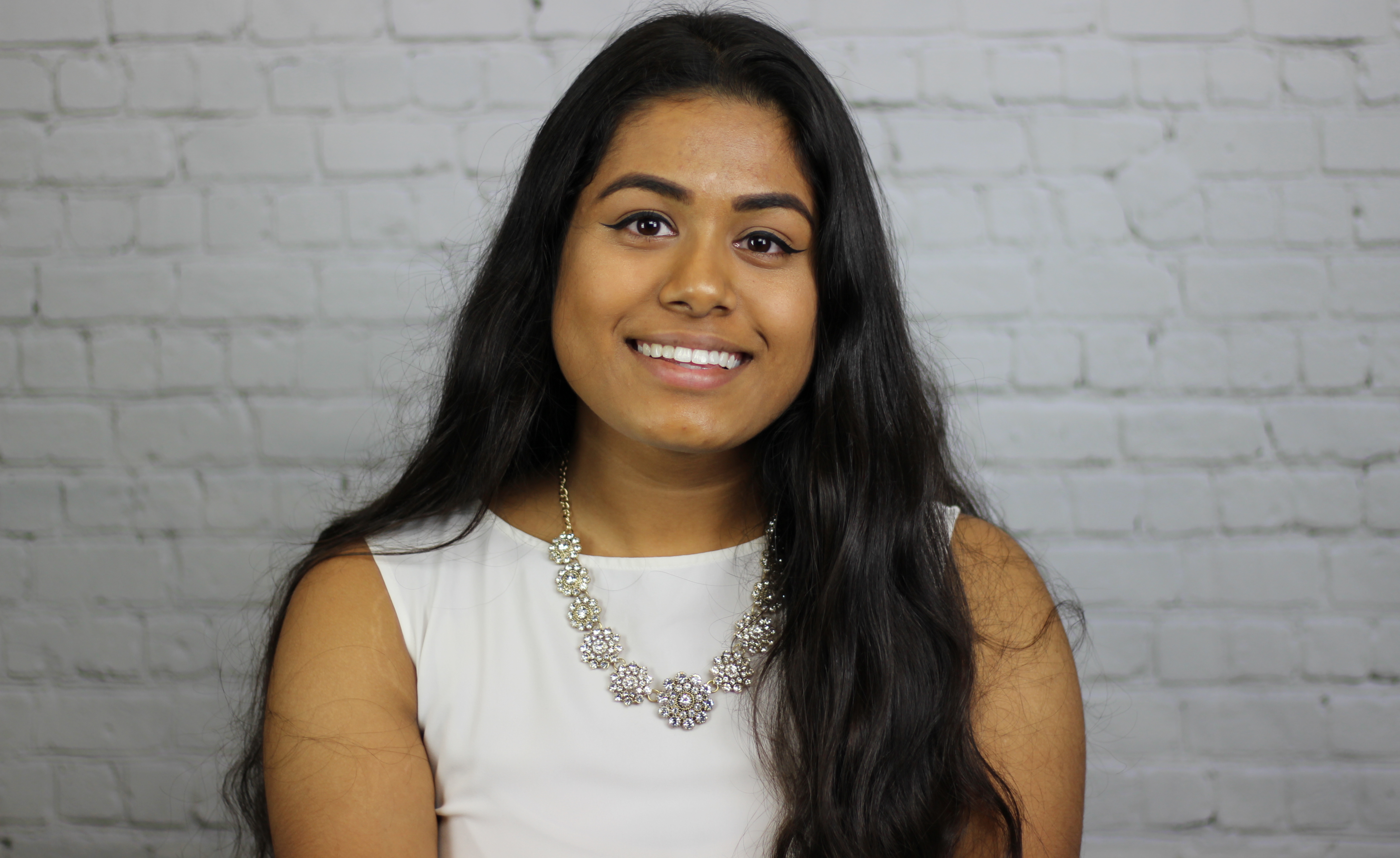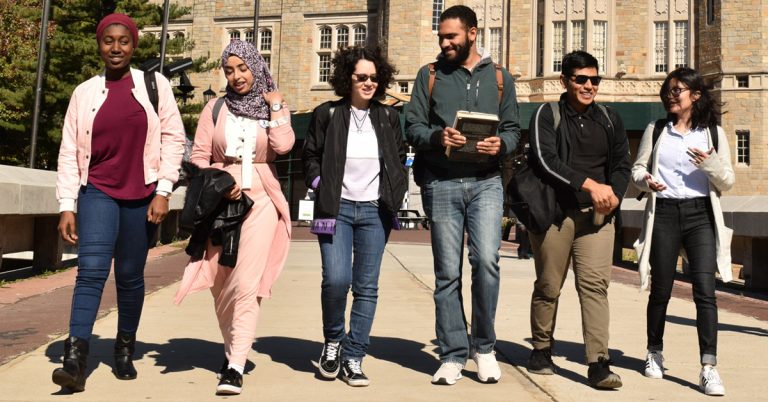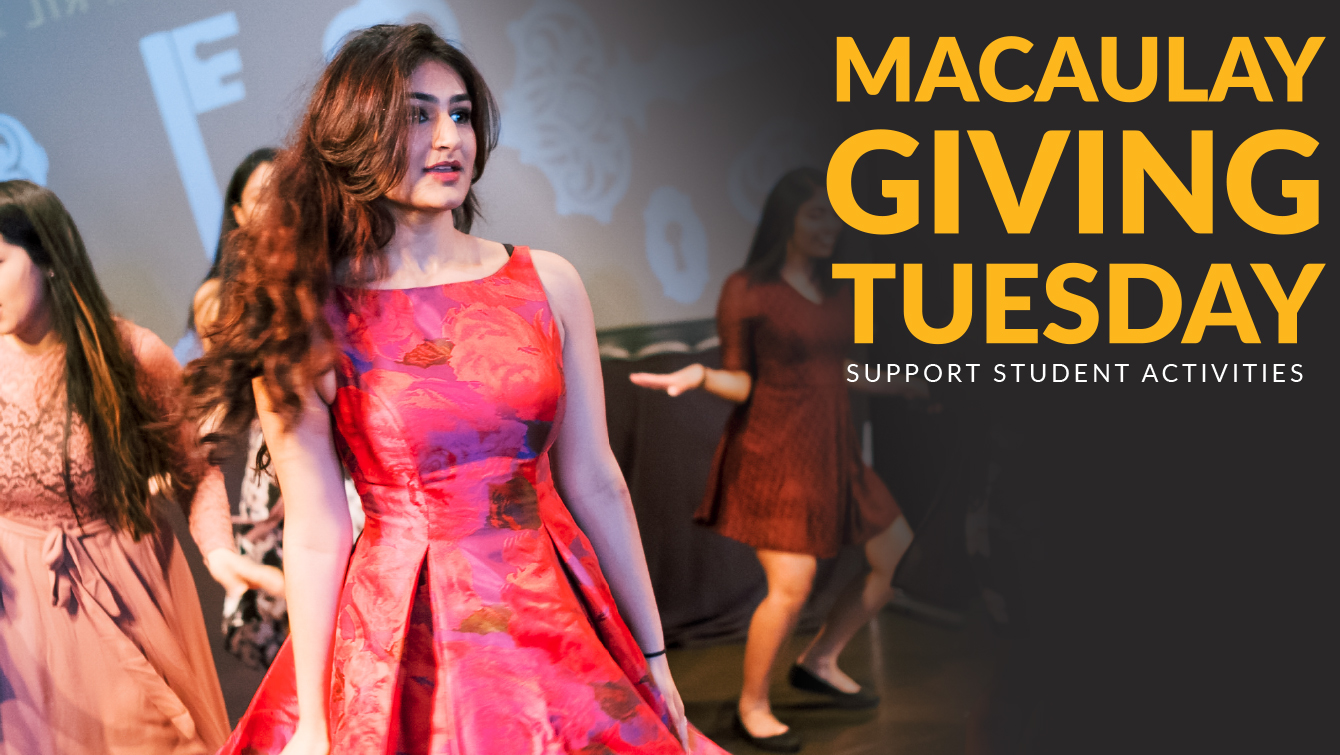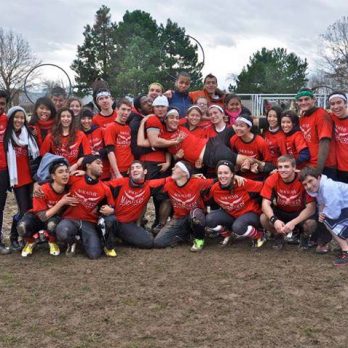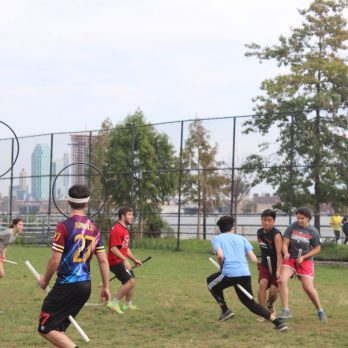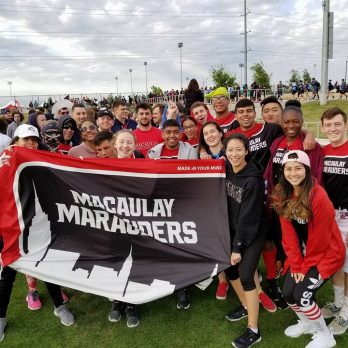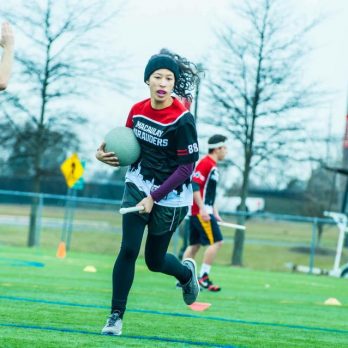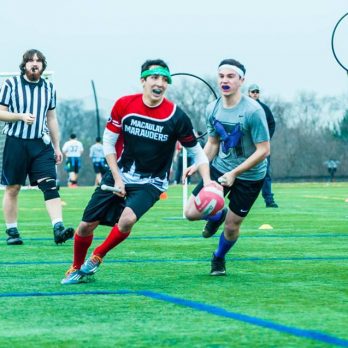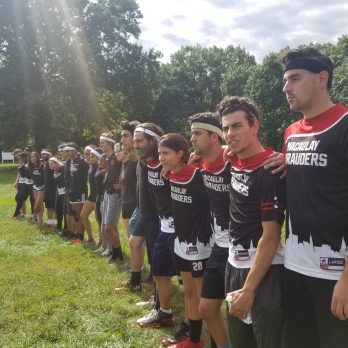From its opening in the fall of 2001, Macaulay Honors College adhered to a policy — spelled out in its charter — that restricted admission to exceptional students who enrolled directly from high school. Transfer students weren’t allowed.
Creating a new, highly selective college that offered financial and academic support to New York’s most promising students was a landmark in The City University of New York’s broad efforts in those years to raise its standards as a top-flight public university. But Macaulay’s faculty have long had reservations about the honors college’s unusual no-transfers policy. Excluding nontraditional students — those whose lives after high school were sidetracked by life circumstances, for instance, or immigrants who opted to start their American education at a community college — seemed inconsistent with CUNY’s mission of expanding access to education for students from diverse backgrounds and experience.
That point of view gained traction in recent years and now, for the first time, Macaulay has enrolled a small number of community college students in a bid to add diversity to the honors college and expand opportunities to deserving students who, for a variety of reasons, have taken indirect routes to college. Under a pilot program called Macaulay Bridge, 18 carefully selected sophomores — 10 from Bronx Community College and eight from Borough of Manhattan Community College — will earn their associate’s degrees in the spring and then continue as Macaulay at Lehman College students.
All 18 students are members of minority groups; most are Hispanic or black and a few are immigrants or children of immigrants from countries including India, Yemen and the West African nation of The Gambia. Macaulay’s overall enrollment, in comparison, is currently about 50 percent white, 34 percent Asian, 9 percent Hispanic and 7 percent black.
“The Macaulay Honors College is one of the jewels of CUNY, and we’re excited by the prospects for increasing access to it for a diverse group of transfer students,” said Interim Chancellor Vita C. Rabinowitz. “Building a bridge between our community colleges and Macaulay reflects our core mission of expanding educational opportunity for New Yorkers.”
Macaulay Dean Mary C. Pearl said, “Our motivation is to make Macaulay a school that represents every segment of New York and better reflects the demographic profile of the senior colleges from which we draw. The diversity of our Macaulay Bridge students in terms of ethnic background, age and life experience not only expands opportunity for them, but we think it’s just a better education for all Macaulay students — the more diverse our classes are.”
Traditional Macaulay students apply as high school seniors to any of the eight CUNY senior colleges, which partner with the honors college and serve as the students’ home campuses.
Admissions decisions are made by the senior colleges, and accepted students are granted free tuition and other benefits, both financial and academic — from free laptops to personalized mentoring and priority course registration. Macaulay’s 2,000 students take most of their courses on their home campuses and come together for Macaulay seminars throughout their four years. They earn joint bachelor degrees from their senior colleges and the honors college.
Admission to Macaulay is highly competitive and attracts high school students with Ivy-level credentials. Last year about 8 percent of its 6,217 applicants were accepted and those admitted had average GPAs of 94.4 and SAT scores of 1416. But barring transfer students has been a blind spot with an unintended effect, Pearl said: “While schools like Vassar, Wesleyan and Columbia have been accepting CUNY community college students as transfers, here was CUNY’s own honors college not having access to them.”
Joseph Ugoretz, Macaulay’s senior associate dean and chief academic officer, added: “Our traditional model of a Macaulay student is 18 years old, just out of high school. But there are really strong, academically talented students at the community colleges for whom life got in the way, for whatever reason: The death of a parent, the birth of a child, immigration status. We wanted those students to have the chance to get the package of benefits and creative, rigorous education we provide at Macaulay. Also this is a group of students with a rich diversity of experience that many of our students don’t have when they come to us. So the program is good for them, and they’re good for the program.”
Named dean in 2016, Pearl advanced the long-simmering idea of opening the door to exceptional community college students. She garnered support from the Macaulay board, CUNY leaders — and, crucially, funding from the Petrie Foundation and the Mellon Foundation — for a pilot program that would cover tuition and other support for up to 20 students. Lehman College, which had the smallest number of Macaulay students at 20, agreed to double its cohort, and BCC and BMCC were chosen as the pipeline campuses.
An effort to identify and recruit potential applicants began in the fall of 2017. First-year BCC and BMCC students with GPAs above 3.5 were invited to apply to a program that promised “an extraordinary and highly personalized undergraduate experience” with the financial support to allow them to graduate “debt-free and ready to lead.” The requirements included recommendations, writing samples and interviews, a rigorous process that eventually produced the 18 Macaulay Bridge scholars.
The first challenge for the students was a summer program that compressed the first two Macaulay seminar courses into an intensive six weeks. This fall, the students are continuing in their associate’s degree programs on their home campuses while taking the third Macaulay seminar at Lehman. The pilot program provides the students with all the support and financial benefits afforded traditional Macaulay students, along with a special adviser and a writing coach.
“We consider them Macaulay at Lehman students now — we wanted them as early as possible to grow in the culture of Macaulay,” Pearl said. “For a long time, one of the obstacles to accepting transfer students was that we want all our students to take four signature Macaulay seminars in their first four semesters. If they transfer in, they’ve missed that first year. So we designed the Bridge seminar over the summer to catch them up so they can join the sophomores. We’re saying to them, ‘Let’s get you mixed right in with the Macaulay students while you’re still in community college.’ The reception from Macaulay students has been nothing but positive. They like the idea of meeting and talking to these students.”
Typical of the Macaulay Bridge students is 29-year-old Rohan Sharma. After immigrating with his family from India when he was 11, Sharma was a high-achieving student at Forest Hills High School who would have been a strong contender for a Macaulay scholarship. “But I had to drop out when I was 16, after my father died and I had to get a job to support my mother. My goal became getting a security-guard license and just a regular life. For 10 years I worked every kind of job. A couple of years ago my mother said, ‘We’re a little comfortable now, maybe you should try school.’ I said, ‘No, I don’t think it’s for me, it’s been too long.’ But I thought about it and decided to go back to school at BMCC.”
Sharma earned a high GPA his first semester and received an email inviting him to apply to a special Macaulay Honors College program. “I looked at the requirements and thought I must have gotten this must by mistake,” he said. “But I thought, why not?” He was thrilled — and astonished — when he was accepted. “I’m completely the nontraditional Macaulay student,” Sharma said during a recent roundtable discussion with half a dozen other Bridge students. “For them to tap into this demographic of students who are very talented but are never heard of because of their lack of credentials, I think it’s beautiful.”
Carlos Perez-Valle, 25, was class valedictorian at Monsignor Scanlan High School in the Bronx in 2010 but his family’s financial difficulties put a hold on his college education that turned out to last seven years. “Typically you go to college, and then you start your career, but it was the other way around for me,” he said. “I worked for educational nonprofits and eventually became a senior program specialist for a small community tutoring program serving the Mexican-American community. I grew with this organization, but I realized I was hitting a plateau, and in order to grow I had to go back to school.”
Perez-Valle recalls hoping to be accepted by Macaulay when he was in high school; eight years later, he’s found his way there through another route. “It’s the kind of college experience I always thought I would have — what I dreamed about when I was in high school,” he said.
Sahar Alsaidi, another Bridge scholar, grew up in Yemen and graduated high school three years ago as her country’s seventh-highest ranked student. But Yemen’s civil war, and its culture, disrupted her education. Her family fled, first to Jordan and then to the United States. “My dream was always to be a doctor,” said Alsaidi, who now lives in the Bronx. “But some members of my family said, ‘You’re a good student but it’s not your country, and you don’t know the language. You should just stay home and find someone to marry you.’ I said, ‘No, I’m not going to do that. I want to achieve my goals.’ ”
Alsaidi enrolled in BMCC and the CUNY Language Immersion Program (CLIP). “I learned English and started taking classes,” she said. “I was so scared, but I challenged myself. And I got A’s. I was so excited that I was the same student here as I was at home. When they emailed me about Macaulay I didn’t think I would get it. I was so happy when they said I was accepted.”
Lena Nelson may be Macaulay’s most nontraditional student: She’s 31, the mother of an eight-year-old son, and came to New York from Jamaica two years ago hoping to finally go to college. “I wanted to go to Lehman, but I didn’t have SATs so they advised me to go to a two-year college and then transfer,” Nelson said. She started at Bronx Community College in the fall of 2017 and was invited to apply to the Macaulay Bridge program after earning straight A’s her first semester. She takes her classes at night and on weekends, works full-time as a guard at a Manhattan art gallery, and says she envisions her dreams in a way she never could.
“My passion has always been to go into health care administration,” she said. “It’s a fusion of business and health, and bio, which I love. After my bachelor’s I’m going to move on to my masters and then my doctorate—that’s not an if, that’s a definite.”
As a group, the Macaulay Bridge scholars have impressed their Lehman professors with their maturity and determination. “What’s missing from this bunch entirely is any feeling of entitlement,” said Anna Purves, an English Department faculty member who taught one of the summer Bridge classes. “Some are recent arrivals who have to handle this huge navigation of a new country and the city. And all of them had to handle the intensive summer program that demanded they do so much more and so much faster than usual. They’re climbing a much steeper mountain than the regular Macaulay students.”
Pearl, Macaulay’s dean, recalls accompanying the Bridge students to a performance of Shakespeare in the Park’s “Othello” as part of the summer’s “Arts in New York” seminar. “They gave a presentation before going to the play,” Pearl said. “And I was so impressed by their comfort with ideas, their pleasure in discussing the universality of the story. That’s when I really thought, yes, these are honors students.”
The City University of New York is the nation’s leading urban public university. Founded in 1847, CUNY counts 13 Nobel Prize and 24 MacArthur (“Genius”) grant winners among its alumni. CUNY students, alumni and faculty have garnered scores of other prestigious honors over the years in recognition of historic contributions to the advancement of the sciences, business, the arts and myriad other fields. The University comprises 25 institutions: 11 senior colleges, seven community colleges, William E. Macaulay Honors College at CUNY, CUNY Graduate Center, Craig Newmark Graduate School of Journalism at CUNY, CUNY School of Labor and Urban Studies, CUNY School of Law, CUNY School of Professional Studies and CUNY Graduate School of Public Health and Health Policy. The University serves more than 275,000 degree-seeking students. CUNY offers online baccalaureate and master’s degrees through the School of Professional Studies.
###

